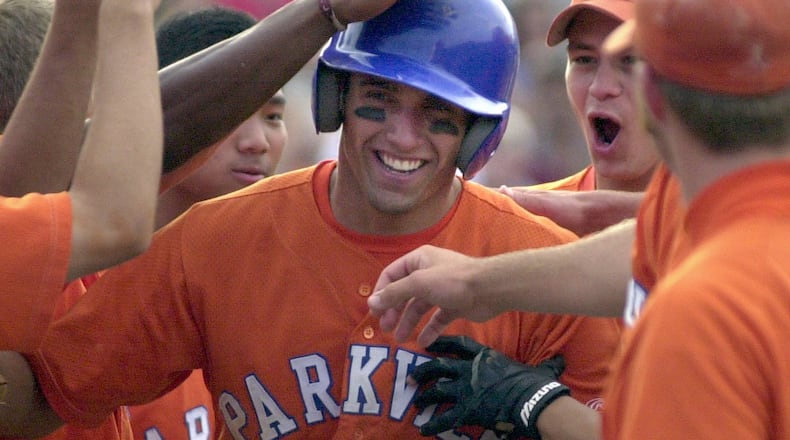Each week, five high school coaches will discuss one issue that affects Georgia high school sports. | Last week: Home-schooled athletes
It really comes down to how good you are.
Jeff Francoeur didn’t need to concentrate on one high school sport because he was arguably one the top of multi-sports athletes the state has produced. Football scholarship from Clemson, then selected No. 23 by the Braves in the 2002 baseball draft.
Georgia Tech football’s all-time leading scorer Harrison Butker, who just won a Super Bowl ring with the Kansas City Chiefs, played soccer, basketball and kicked for the football team at Westminster. He said he didn’t need to specialize — one sport helped the other.
But other athletes across the state who need to concentrate on one sport in an effort to obtain major-college scholarships, are specializing. In many cases, the sport is picked in junior high, and the high school years are devoted to mastering that sport. As a result, the multi-sport athlete isn’t dying in Georgia, but the numbers are declining.
Are there benefits for both? Yes. The multi-sport athlete faces less of a chance of burnout from focusing on one sport all year. The specialized athlete learns discipline.
So there’s your issue. What’s the best route — specialization in one sport or being the best you can be in two sports? Or three?
The skinny: A two-sport star athlete at Parkview High School in the late 1990s and early 2000s, Jeff Francoeur carved out two paths — to begin football career with a scholarship as a 4-star defensive back at Clemson or pursue a baseball career as a right fielder in the major leagues.
Arguably one of the greatest two-sport athletes the state has produced, Francoeur chose baseball. He worked through the Braves farm system and joined the big-league team in 2005.
Francoeur did not specialize and didn’t need to. So his opinion on the issue of specialization during the high school years are not surprising.
Don’t.
Francoeur: "I have always said that playing football made me a better baseball player and playing baseball made me a better football player. And I think playing two sports is a great thing. If I had played baseball from 10 years old on and had just done that, there's no doubt in my mind I would have burned out. I would not have had the passion if I didn't (play) football the other six months. I think there had to be a separation there. Give yourself opportunities and you never know what you're going to grow into and become. So I think you have to find a way to keep playing.
“I just don’t get the people who try to just specialize and play one sport now. I think that they get cheated.
“(Today) you have these kids playing 150 baseball games a year. They're at all these showcases. I remember scouts saying that they loved me playing baseball, but they also would love to watch me play football in the fall because it leaves something to the imagination when the scouts think, ‘Man, he does this with just six months of baseball, what’s he going to be when he’s dedicated at it full-time? How good will he be then?’ So playing two sports kind of left people wanting more. When you’re 15, you are just not meant to do just one thing.
“... At Parkview, I always said we were so dang good was because we had guys playing football, basketball, baseball and all of it. Guys were doing that and it gave you a break to kind of get away for a while from the other sports.
“I was known in the big leagues as having one of the best arms in the outfield. Well, if you think about it, for six months I never threw a baseball. Yeah, so my arm was resting. It was recovering. Now you got these kids who are 16 years old throwing seven innings on a Friday night and turning around and throwing two, three or four innings on a Sunday afternoon in the championship game of a tournament. And I'm like what in the world are you doing? You know? Because I wish I could tell these parents. ‘Do you want your kid to win the 16 year old World Series and have a burned-out arm at 17? Or do you want your kid to play professional baseball or have a chance in college?’ To me it’s a no-brainer.
“I was 23rd pick in the draft in 2002. And I was a fifth-highest signing bonus. And you want to know why that was? Because they had to buy me out of my football scholarship. So you’re sitting here telling me that I probably made an extra $750,000 by having that in my back pocket? So you could miss out by putting all of your eggs in one basket when you’re 14, 15 or 16 years old.”
AT ISSUE: Multi-sport athletes vs. specialization
• Jeff Francoeur, former Parkview multi-sport star • Harrison Butker, former Westminster multi-sport star • Tim McFarlin, Blesses Trinity coach • Rush Propst, Valdosta coach • Tim Hardy, Greater Atlanta Christian coach » MORE: Previous topics
About the Author


